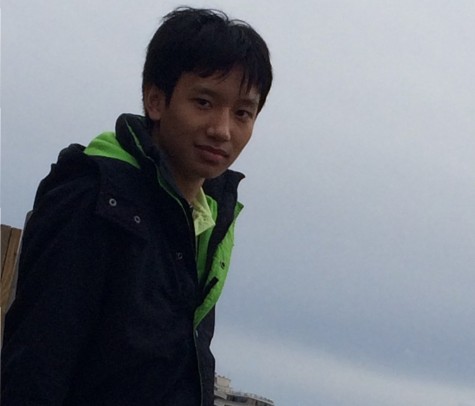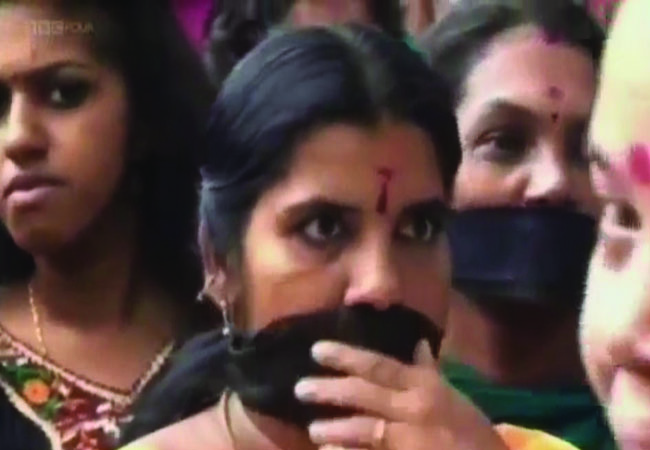India wrongly bans rape documentary
India’s daughter includes scenes of citizens protesting against violent rape.
On the night Dec. 16, 2012, Jyoti Singh boarded a private bus with a friend after an evening at the cinema in New Delhi and was later ganged raped by a group of men.
Singh’s death has sparked public outrage and numerous protests that lasted for months in cities across India.
The rape victim is now the subject of a controversial documentary titled India’s Daughter.
The documentary was banned from airing its premier in early March on Indian television due to the government’s concern of the film’s “objectionable content,” according to the BBC.
In other words, government was worried that the documentary would cause public anger to reignite.
The documentary’s expulsion in the very nation that it serves to raise awareness for infringes the basic democratic rights of free speech and expression.
Censoring one’s intellectual property is shameful.
Widespread attention regarding rape in India, had caused numerous copies of the documentary to be illegally uploaded on Youtube.
The BBC has removed all illegal copies due to copyright infringement concerns.
In this day and age, removing a video once it’s released onto the Internet is virtually impossible.
The BBC should release the documentary online for viewers around the world to gain knowledge on rape and sexual violence issues that are plaguing countries such as India.
The Indian government has no right to ban the documentary before it even airs. This is nothing but an act to downplay the issue of rape and prevent change from altering the nation’s backward views of women.
This is very concerning for a country with the distinction of being the world’s largest democracy.
I decided to watch the documentary for myself after hearing about the large media attention surrounding its controversial release.
I did not find any of the content offensive or politically radical.
The documentary does an effective job of emphasizing the magnitude of rape and gender ideologies in Indian society.
Centuries of gender inequality have caused some men to believe that they can harm women as they please.
The aforementioned is illustrated when a rape suspect revealed during a disturbing interview scene that “a girl is far more responsible for rape than a boy.”
It’s estimated that a woman is raped in India every twenty minutes.
What’s even more infuriating is that rather than addressing the problem of sexual violence, the government has decided to focus its attention on getting rid of the documentary as quickly as possible.
Politicians are likely attempting to save their own skin.
It is revealed in the documentary that a total of 250 members of the Indian Parliament are accused of rape and have pending cases against them in fast track courts.
This goes to show the government itself is perpetuating rape. The truth should be revealed to the public. They are the ones exposed to these heinous atrocities.
Critics of India’s Daughter accuse the documentary and its director Leslee Udwin of fabricating stories and producing deceptive content to provoke strong public reactions.
One of the sources interviewed claims that the documentary is “misleading” without the opinion of the victim Jyoti Singh.
The previous statement is clearly illogical since Singh is already deceased.
On the other hand, India’s image to the rest of the world has been marred over the government’s handling of the rape controversy.
On the other hand, criticizing India’s Daughter is the equivalent of suppressing the voices of those advocates, journalists, and rape victims from trying to change society.
Although the documentary may seem sensationalized to some viewers, at least the people behind it have the courage to speak up using the power of media.
Remember KONY 2012? The world seemed to support the documentary’s rally cry to capture Ugandan warlord Joseph Kony and eradicate child kidnappings.
The purpose of India’s Daughter is no different. Global awarness against sexual violence is the only way to call for social reforms.
In a diverse environment such as AHS, it’s important to be aware of global issues such as rape.
“Since the [documentary] was not aired, there is less of a chance that there would be any social change for women,” junior Kim Mai said.
In opposition to the censoring of India’s Daughter in its country of focus, the film premiered in U.S. last week with attendance from recognizable figures such as actresses Meryl Streep and Freida Pinto.
Rape is not an issue that is present only in India. It is a global phenomenon furthered by misogyny that has no place in modern society.

Phuong is a senior at AHS and this is his third year on staff. He was previously an Editorials Editor and Lifestyles Editor. You can find Phuong on the...





